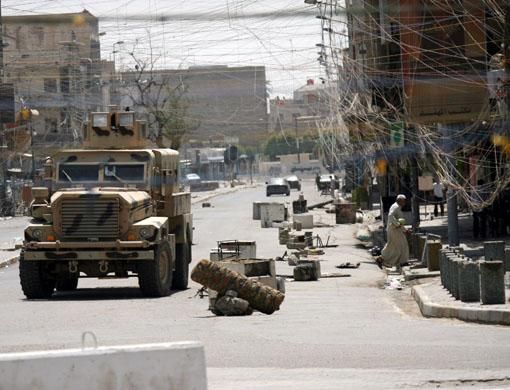Baghdad: Iraqi Prime Minister Nuri Al Maliki's unity government plunged deeper into crisis on Monday when four secularist ministers withdrew from cabinet meetings, less than a week after the main Sunni Arab bloc quit.
A total of 17 ministers, nearly half of Maliki's cabinet, have now quit or are boycotting meetings at a time when he is under growing pressure from frustrated US officials to make demonstrable progress in reconciling Iraq's warring sects.
The Cabinet boycott of five ministers loyal to former Iraqi leader Ayad Allawi left the government, at least temporarily, without participants who were members of the Sunni political apparatus — a deep blow to the prime minister's attempt to craft reconciliation among the country's majority Shiites and minority Sunnis and Kurds.
The Allawi bloc, a mixture of Sunnis and Shiites, cited Al Maliki's failure to respond to its demands for political reform.
Iraqi President Jalal Talabani, who has been trying to broker the Sunni bloc's return in a bid to hold the government together, met on Monday with US Ambassador Ryan Crocker and a White House envoy.
The cabinet boycott means Maliki sets off on Tuesday for visits to Turkey and Iran this week, with signs he is losing control of his government back home.
Washington has increased pressure on Iraq's leaders, accusing them of failing to make political progress.
On Sunday, US Defence Secretary Robert Gates criticised Iraq's parliament for going on recess last week without passing laws Washington considers vital for ending sectarian violence.
Earlier on Monday, a truck bomber in a crowded residential area killed at least 33 people in their homes.
Four US soldiers died on Monday in an explosion while on combat duty in Diyala province in Iraq, the US military said.
Twelve other soldiers were wounded in the attack in a volatile region of the country where American forces have launched a major operation to combat insurgents.
A huge truck bomb flattened houses in a residential neighbourhood in the northern Iraqi town of Tal Afar.
A doctor at the town's main hospital told Reuters 33 people had been killed and 52 injured. Among the dead were 16 women and many children, he said. Rescue workers sifted through rubble in an attempt to find survivors from the attack.
"This indiscriminate violence, meant to reverse progress and turn Iraqis against one another, again shows the nature of this barbaric enemy," the U.S military said in a statement.
In eastern Baghdad, six people died and nine were wounded when street cleaners were hit by a bomb hidden in a rubbish bin in the early morning. Another bomb on a minibus killed two.













